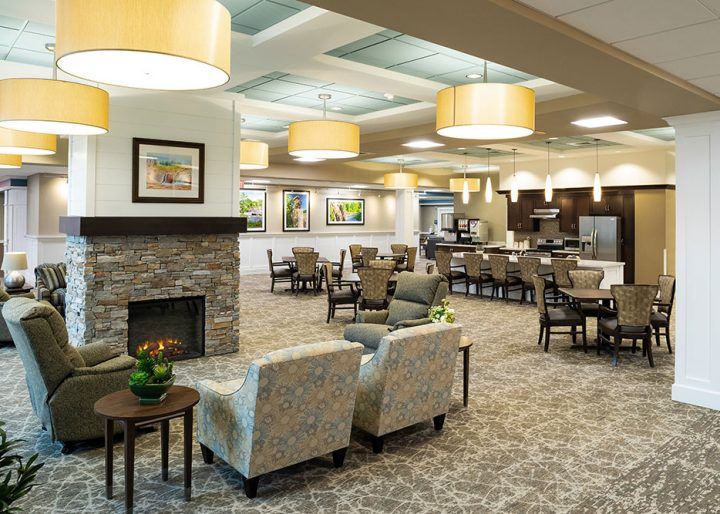Find animal-friendly Assisted Living facilities for seniors who love animals.
Find animal-friendly Assisted Living facilities for seniors who love animals.
Blog Article
Discovering the Right Assisted Living Service for Tailored Memory Care Programs
The procedure of choosing a proper assisted living service for customized memory care programs needs a nuanced understanding of individual demands, specifically as they relate to cognitive problems such as Alzheimer's and dementia. As we check out these variables, the concern remains: what absolutely constitutes an ideal setting for memory care?
Understanding Memory Treatment Needs
Comprehending the one-of-a-kind memory care demands of individuals with cognitive problems is essential for giving effective support and boosting lifestyle. Cognitive problems, consisting of Alzheimer's disease and other types of mental deterioration, significantly affect a person's capability to procedure details, interact, and preserve freedom. As a result, tailored approaches are necessary in dealing with these difficulties.
Individuals with memory disabilities frequently experience complication, state of mind variations, and disorientation, demanding an encouraging and structured environment. Memory care programs must concentrate on developing a secure area that motivates social interaction, cognitive interaction, and psychological wellness. This can be accomplished with specialized activities, such as memory games, art therapy, and reminiscence sessions, which promote cognitive stimulation and protect individuality.

Examining Staff Qualifications
The credentials of team member in memory care programs are essential to providing premium support for people with cognitive problems. Assessing personnel credentials entails examining both instructional background and functional experience in geriatric care, particularly in memory-related problems such as Alzheimer's and other types of mental deterioration.
Look for personnel that possess pertinent certifications, such as Licensed Mental Deterioration Expert (CDP) or specialized training in memory care. These qualifications show a commitment to understanding the intricacies of cognitive decline and efficient communication techniques customized to homeowners' unique needs. Furthermore, inquire about continuous training chances that employee take part in, as continuous education and learning is crucial in a field that evolves rapidly with new study and best practices.
Furthermore, evaluate the staff-to-resident ratio, as this directly affects the quality of care. A lower proportion enables even more individualized focus and involvement with homeowners. In addition, observe team communications with present citizens to assess their empathy, patience, and ability to attach. Inevitably, a well-qualified team is critical in fostering an environment that boosts the self-respect and lifestyle for individuals in memory treatment.
Significance of Personalized Care Program
Personalized treatment plans play a critical function in enhancing the health of individuals in memory treatment programs. These plans are customized to the distinct demands, choices, and capabilities of each homeowner, making certain that care is both relevant and efficient. By thinking about factors such as clinical history, cognitive function, and individual interests, caregivers can develop an extensive technique that promotes self-respect and regard for each person.
The importance of personalized care plans prolongs past fundamental care needs; they foster a sense of protection and knowledge, which is vital for people experiencing memory difficulties. By attending to details behavioral patterns and emotional reactions, caregivers can execute methods that reduce stress and anxiety and enhance general high quality of life.
In addition, individualized care strategies assist in far better interaction amongst personnel, family members, and doctor. This collaborative approach makes certain that everyone included is informed and aligned in their treatment initiatives, causing more constant and efficient support. Ultimately, a well-structured personalized treatment strategy is crucial in memory care programs, as it not just improves everyday living experiences but additionally contributes to the long-term health and wellness and happiness of residents.
Involving Activities and Programs

Tasks such as art therapy, songs sessions, and reminiscence treatment give opportunities for self-expression and cognitive engagement. These purposeful communications not only help in preserving cognitive capacities however also use emotional advantages, minimizing feelings of seclusion and stress and anxiety that typically accompany amnesia.
Furthermore, structured group tasks can motivate socialization, which is vital for emotional wellness - Assisted Living. Normal participation in games, workout classes, and area outings produces an atmosphere of sociability and support. Customized programs that think about specific rate of interests and backgrounds further improve engagement, making tasks much more purposeful and effective
Integrating modern technology, such as memory games and digital reality experiences, can likewise serve to enhance the every day lives of citizens, giving cutting-edge ways to promote cognitive feature. Eventually, a concentrate on appealing tasks and programs is essential for fostering a helpful atmosphere that promotes alternative health in memory care settings.

Assessing Community Atmosphere
When evaluating a neighborhood atmosphere for memory care programs, it is essential to think about variables that add to the overall wellness and safety and security of locals. The physical format of the area should prioritize access and navigating, minimizing challenges while giving clear signage and familiar landmarks. A protected atmosphere is important to prevent locals from straying, which can posture safety and security risks.
Additionally, the sensory aspects of the community, such as lighting, shade plans, and noise levels, play a significant role in enhancing comfort and minimizing anxiousness amongst homeowners. All-natural light and outside areas promote interaction with nature, promoting a comforting ambience that can profit cognitive function.
Another essential aspect is the availability of qualified personnel that understand the distinct demands of people with memory disabilities. Staff should be equipped to create a caring atmosphere that encourages social communication and psychological support.
Last go now but not least, the feeling of neighborhood and belonging is important. Engaging family members involvement and opportunities for residents to develop connections with peers can substantially improve their total lifestyle. Memory Care. By very carefully evaluating these variables, family members can make educated decisions regarding the most ideal memory care area for their liked ones
Conclusion
Finally, choosing a suitable assisted living solution for customized memory care programs necessitates a detailed examination of individual demands and preferences. Focusing on staff credentials, personalized treatment plans, involving activities, and an encouraging community setting is necessary for enhancing the high quality of life for residents dealing with cognitive obstacles. By dealing with these essential variables, households can make certain that their loved ones get the essential support and care to cultivate emotional health and cognitive stimulation in a nurturing setting.
Report this page